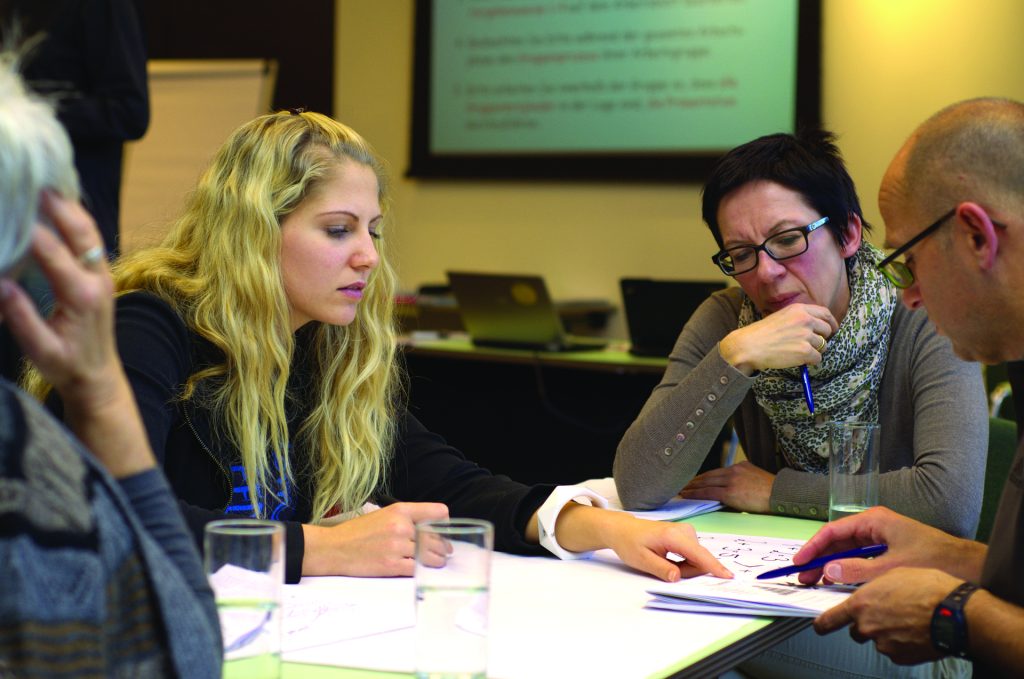As a business owner and employer, it will not have escaped your notice that there are more older people staying on in the workplace these days. This not only means that employees are still working well into their 60s and 70s, but it can also mean that some of the older generations are moving jobs later on in life, or even starting completely new careers later than ever.
However, despite perceptions, the older generation staying in employment for longer is actually not a new trend, and it doesn’t look like it will slow down any time soon. But fortunately, bringing older people into your business can have more benefits for your business than you think.
In this article, we’ll examine employing older people in your business, and look at issues around both employing and then looking after, the older members of staff you have or wish to hire.
What Are The Benefits Of Employing Older Workers?
In years gone by, it was usual that people would tend to retire from their late 50s and into their early 60s. With the UK retirement age traditionally being 65, most employees were out of the workforce by the time they hit that milestone.
However, these days, thanks to changes in the UK state pension age, which is currently sitting at age 66 (and will likely increase again in the coming years), as well as an increase in life expectancy generally, both men and women are now remaining in the workforce for longer than they ever have in previous generations.
And, whilst the world of working is evolving more quickly than any previous generation has ever experienced, and some businesses believe that employing young people is the best way to stay ahead of the curve, there’s no denying that employing older people in your business can also bring great advantages.

Here are some of the main ways older employees can benefit your business.
- Older People Bring Expertise And Knowledge To The Workplace
Having older members of staff can of course be beneficial to you, the department the employee is part of, and other departments within the business. Depending on the experience the person has, they can bring a wide range of expertise in areas that you may not have even realised needed guidance or support.
Employing older people can also instil a strong work ethic into younger, less experienced members of staff. There are even studies that have proven departments comprising of mixed-age workers are more productive than teams that are the same age (Zwick, Gobel and Fries (2013).
- Older People Can Provide Mentoring In The Workplace
With older employees, they can be on hand to help mentor the younger staff members, helping to solve problems that might not have originally been thought about by less experienced staff. They can also be involved in training and supporting new employees, all of which will benefit your business.
Being a mentor for a younger member of staff or apprentice will be a good way for the older member of staff to provide knowledge of the industry, work and their own experiences in a way that doesn’t come across as managerial or condescending. There is also an argument that mentoring can also provide an opportunity for the mentor to reflect on past mistakes and pass their wisdom on in a way that is more helpful to all parties involved.
- Older People Can Help To Increase Inclusivity And Diversity Within The Workplace
Employing an older person can help create a more inclusive and diverse workplace. Having a diverse workforce with people from a range of backgrounds and ages etc., can lead to more creativity and productivity, to innovation being improved, and to decision-making being more of a team effort, all of which is better for your business.
With a more diverse and inclusive workforce, you can also have more opportunities for better collaborative working; differing backgrounds and experiences work better as there is more scope for discussion and debate. When staff are from too similar backgrounds, there can be little pushback on certain ideas and this can lead to more conflict or problems further down the line.
How Do You Accommodate The Needs Of Older Workers In The Workplace?
Modern workplaces are very different to the workplaces of the past. Today’s working spaces are often dominated by technology and may well also include elements that would have been an anathema to the workers of the second half of the twentieth century, such as beds, relaxation areas, ‘pods’ and pool tables. These spaces can sometimes be daunting to older employees, who cut their teeth in a very different, analogue age.
Hence, if you have older people employed in your business, it’s important to ensure their needs are accommodated just as much as the needs of your millennial and ‘Gen Z’ staff.
Here are some aspects you may wish to consider.
- Older People May Prefer Flexible Working Arrangements
It is likely that flexible working arrangements are already on your radar for your employees, but it’s important to remember that adjustments such as these are as vital to your older team members as they are to your younger ones. Older people may have commitments outside of work, such as caring for family members like elderly parents or grandchildren and may need more accommodations than younger members of staff. One way of helping your older workers to remain in employment later in their lives is to work with them to come up with a working arrangement that works for all parties.
Here, there are different options open to you as an employer, such as offering part-time work, flexible working hours, job sharing or remote working. However, not all of these options will work for all employees or for all employers, so it is important that all flexible working requests are considered carefully and on a case-by-case basis, as these arrangements must work for you, the employers, just as much as they do for the employee.
- Older People May Require Skills Training In Technology
Providing the correct training for the right people is important no matter what the age of the employee. However, technology these days is changing constantly and quickly, and many older people are being forced out of the workplace because they have been insufficiently trained, or feel insufficiently confident, at using the required technology.
That’s why it’s important you ensure the older members of your workforce are trained in any new systems, computers or processes with technology, to enable them to do their work properly, be proactive when dealing with problems and give them the right skills to progress in their careers. In this way, your business will benefit from their experience as well as their skill.
If in doubt, there are always ways in which you can help older members of staff with training and learning, such as providing or sending them on workshops that are dedicated to upskilling employees, either as a full team training session or as private one-to-one sessions, depending on how the employee feels.
It is also worthwhile giving regular skills training to the whole department or your entire workforce, as this will mean that everyone is trained up on the same things at the same time, and your workplace will, by default, become a more equal space for all employees, regardless of age or experience.
- Older People May Require Some Career Planning
You might think it’s not worthwhile spending time on career progression planning for an older member of staff, but it’s important to remember that you need to treat them just the same as everyone else on your team. You never know, your older employees may well have their own career path or retirement plan that they want to follow, and it’s crucial to speak to them regularly to find out what their goals and objectives are each year.
Not only is working with your older employees on this issue good for them, but it will also benefit your business, as it will ensure you are aware of the long term plans of your employees and where this fits within your business. Understanding your staffing requirements over a longer-term period will enable you to implement your processes more effectively, as well as to understand what recruitment needs you will have in the coming months and years.
Allowing older staff members to work on their own career progression is also an ideal way of keeping them in the workforce. Providing them with the support, guidance and training they need to reach their full potential is always going to work in your favour, particularly in the current employment landscape, where recruitment can be one of the most costly expenses your business will have.
- Older People May Need Additional And/Or Ongoing Support For Health And Wellbeing
Again, this is something that should be factored into your ongoing approach and something that can be discussed as part of your outsourced HR support package. Ongoing support in the workplace for the good health and wellbeing of your staff is such an important issue these days to all employees, particularly those who are older and is something that should feature as part of your everyday HR policies and strategies.
Good health and wellbeing practices can include initiatives such as providing mental health support through a partnership with a counselling or therapy support service. You could even look into providing additional time off for medical appointments, as well as the potential for providing breakout spaces for people to have regular breaks, rather than stay at their desks all day.
What’s more, it’s important to be aware of cultural conversations that may require new workplace accommodations that have never been thought of before.

As ever, any accommodations made should first be discussed privately with the relevant staff member and will likely need to be made on a case-by-case basis. They must also ensure minimal disruption to the rest of the team and be applied equally, to ensure no other staff member is inadvertently advantaged or disadvantaged by the changes.
Finally, as with any adjustments you make for your employees, they must also make sense from a business perspective, and it will be important to interrogate the business case before any changes are implemented. If you require any help with this, Metis HR are always on hand to assist.
Contact Metis HR For Help When Employing Older People In Your Business
As we’ve discussed, if done correctly, there can be many benefits to employing older workers in your business, and Metis HR is on hand to guide you through the process at every step.
Having members of staff who are older will help you with training, experience and mentoring capabilities, as well as providing you with a diverse and inclusive workforce that will help your business to grow and thrive. A business with people from all ages and walks of life will always have a better workplace culture and will bring more to your business in the long run.
If you’d like to speak to a professional HR Consultant about how you can ensure your business employs older people successfully, then please contact Metis HR today. Our HR experts have decades of expertise in this very area, so they can advise you with confidence.
Speak to Metis HR today to discuss how we can help you through the process of hiring, training and retaining older employees, by using the contact form on our website, emailing us at info@metishr.co.uk or phoning us on 01706 565 332.

